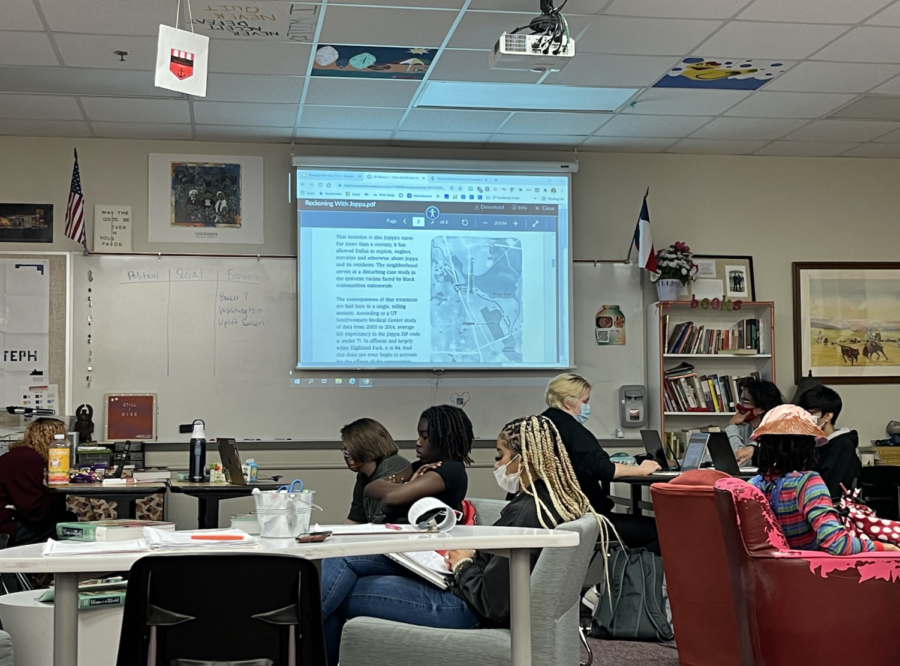After years of advocating, an effort originally started by social studies teachers in Houston ISD, the state of Texas officially recognized an African American studies course to be taught in high schools across the state in late April. This year, the course has made its debut in Frisco ISD classrooms and on campus, with students diving deep into the history of Black Americans.
“African American studies has been a process that started in Houston ISD a couple years ago, as an elective,” African American studies teacher Sarah Wiseman said. “So Frisco had been making a plan to get it in as soon as it had TEKs offered by the TEA. Last year they kind of went through the process of making a plan about what the course was going to be like and picking out which teachers would teach it at each campus, and then this summer we all did some training and made a curriculum.”
The class is the first of its kind on campus, however, the district recently announced the arrival of another ethnic studies course, Mexican American studies, to be taught next year. Sophomore Morgan Bishop, who is currently in Wiseman’s African American studies class, believes that ethnic studies courses are widely beneficial for students.
“It is crucial for the school system to provide ethnic studies classes to not only diversify the learning environment of our high schools but also to expand the perspective of their students,” Bishop said via text. “Giving us opportunities to learn the true history and aspects of different cultures, which over time is beneficial, breaks down the idea of ‘the single story’ stereotype, and gives room for connection with classmates:people of all different origins.”
Currently classified as a social studies elective, there is more flexibility in the curriculum than in other history courses.
“There’s a couple of reasons why I would encourage students to take this course,” Wiseman said. “It is an elective, and it’s what we would call an interdisciplinary course. So we get to do cool things and slow down and focus in a way that you can’t in other social studies classes.”
Bishop has noticed this difference and appreciates the change in pace and classroom style.
“Within normal social studies classes we have been taught the same moments of African American history, slavery, and civil rights,” Bishop said via text. “It’s always a week’s worth of textbook learning, and nothing else. However, in African American studies rather than portraying the stories of African Americans as a massive tragedy, it opens a new perspective of perseverance, hope, and beautiful celebratory moments of the community and culture itself.”
Teaching the full story and lifting the voices of traditionally marginalized communities has always been a priority for Wiseman, but with African American Studies it’s been made a lot easier.
“I try really hard, and don’t always succeed, in World History to center non-Western voices and stories and perspectives, because it is world history,” Wiseman said. “That doesn’t happen full time though, you can’t get around having to teach the enlightenment, and other Western stuff. So it’s really that mental focus of getting to teach history and center African American voices at the heart of it. This course really does flesh out your understanding of what it means to be an American, to think about a variety of different American experiences.”
For some students, such as senior Gabrielle Essien, who is half-Nigerian, the course is more than history on a textbook page: it’s their ancestry.
“I wanted to go deeper into what African American history really is because in other history classes we don’t get the full details,” Essien said. “We just skim through slavery and the civil rights movement and I wanted to find my roots and explore Black joy in general. That’s what it’s really about, especially at this point in our society with all the racism, and I think it’s a really good thing that FISD did, bringing this class onto campus.”
This story was originally published on Wingspan on November 4, 2021.




































